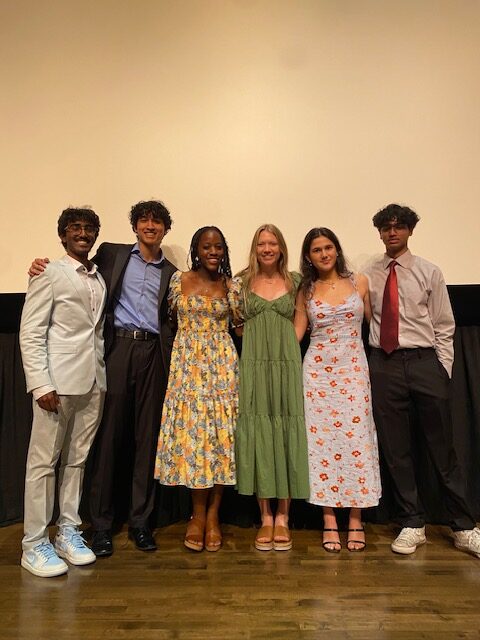At New Albany High School in Ohio, where I’ve served as the National Honor Society adviser for almost six years, I don’t worry that we won’t have enough candidates to fill the six officer positions in our chapter. As a high-performing school, we attract a lot of students who become NHS members, and the biggest challenge is making sure that the students who run are doing it for the right reasons.

Every school probably has some students who want to be the officer of everything, in part because it looks good on their college application. I know ours does. So, I’ve figured out a few strategies over the years to help make sure prospective officers know what the job involves and are running because they are committed to making the chapter the best it can be. Here are a few things that have worked for me.
Make sure all your members know what’s involved with being an officer. Our elections are in April, so at our March meeting our current leaders talk in some detail about that. I think the members have a general idea of what the officers do because they run the meetings, and the members interact with them during the school year. But I don’t think they know everything that goes on behind the scenes, so this discussion is very useful.
Interview students who want to run for office. I send out a Google spreadsheet so students who want to run can sign up for 15 minutes with me. I explain again what being on the board means and what the time commitment is. I also ask what other activities they are involved with, what the officer time constraints are, and the commitment needed to fulfill this role. Some have chosen not to run, but the majority still decide to run, and that’s OK. One new rule we have is that no student is allowed to be an officer of both NHS and student council. Those are the two biggest clubs on campus, and the time commitment is too much to lead both at once.
Building on that, I also require anyone running for a board position to talk to the current officers. They explain what they do, what they like and don’t like, and what it’s like working with the other officers and me.
Don’t allow people to submit nominations from the floor just before the election. That’s what we did in my first year because that’s how they had always done it. But what happens is that someone nominates Joe, and he gets up and gives a speech. If he’s funny and has a lot of friends, his peers will elect him even if he’s not the most qualified candidate. Instead, we want to run a well-planned process that includes time for candidate speeches and time for members to thoughtfully consider their choices for chapter leadership.
Technology is your friend. After our candidates give their speeches—two minutes for president and one minute for other positions—we have a Google form ready to send out at the end of the meeting, and members have 48 hours to vote. It helps keep the process as anonymous and unbiased as possible.
On the day of elections, I remind the students again to vote for who they think is the best person for the job, not just because someone is your friend. And even though our seniors are graduating, I ask them to think about who would be best for the job if the aim is to make our chapter even better.
The last thing I would say is to trust the process. You need to know your chapter, know your members, and do your best to help make sure the best students are running to become chapter leaders. Ultimately, it’s my job to help develop students as leaders because members put their faith in a candidate by voting for them. Then, the executive committee undertakes the task of leading the chapter and working with the members together.
Visit the Adviser Resource Center to find more helpful tips and resources.

